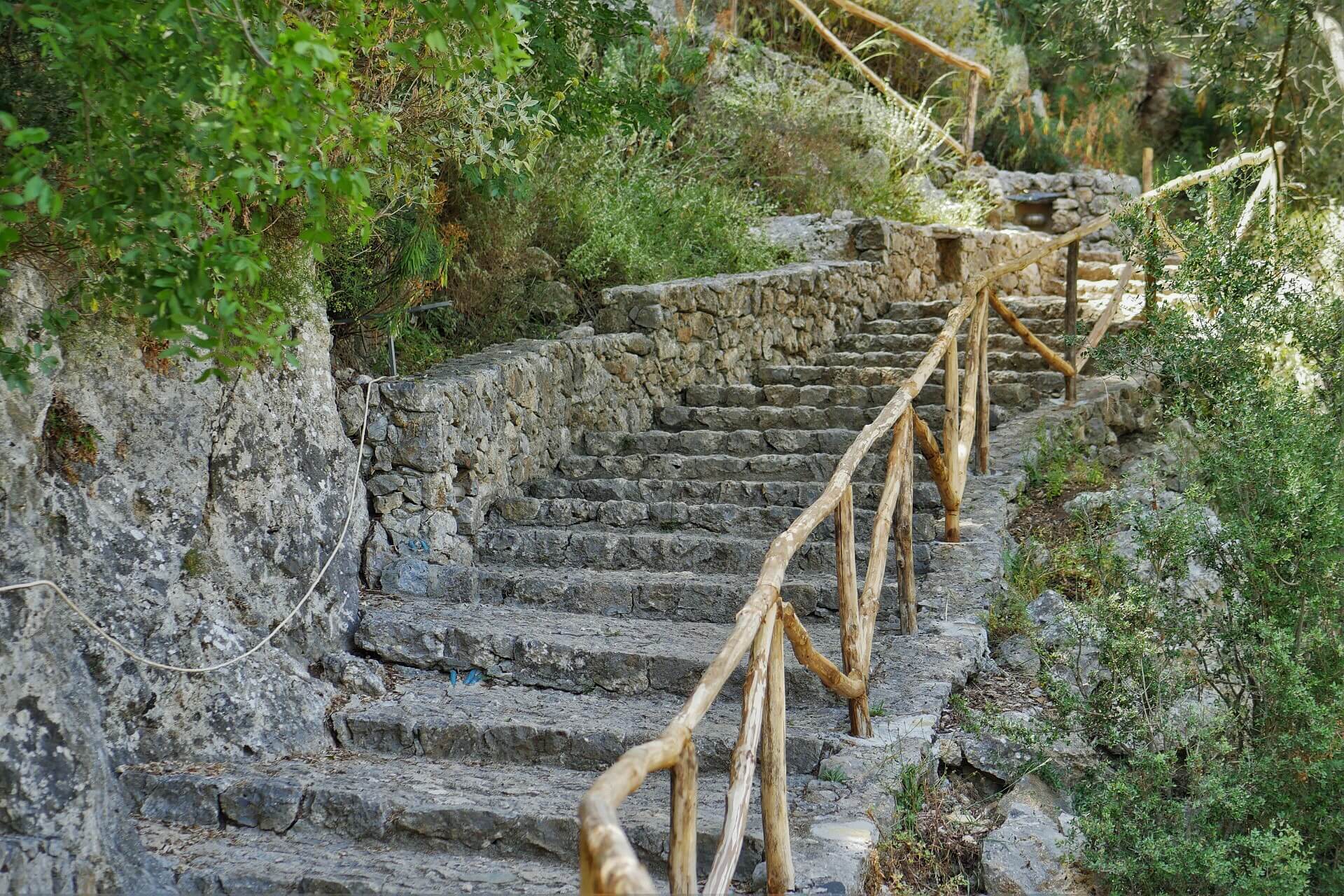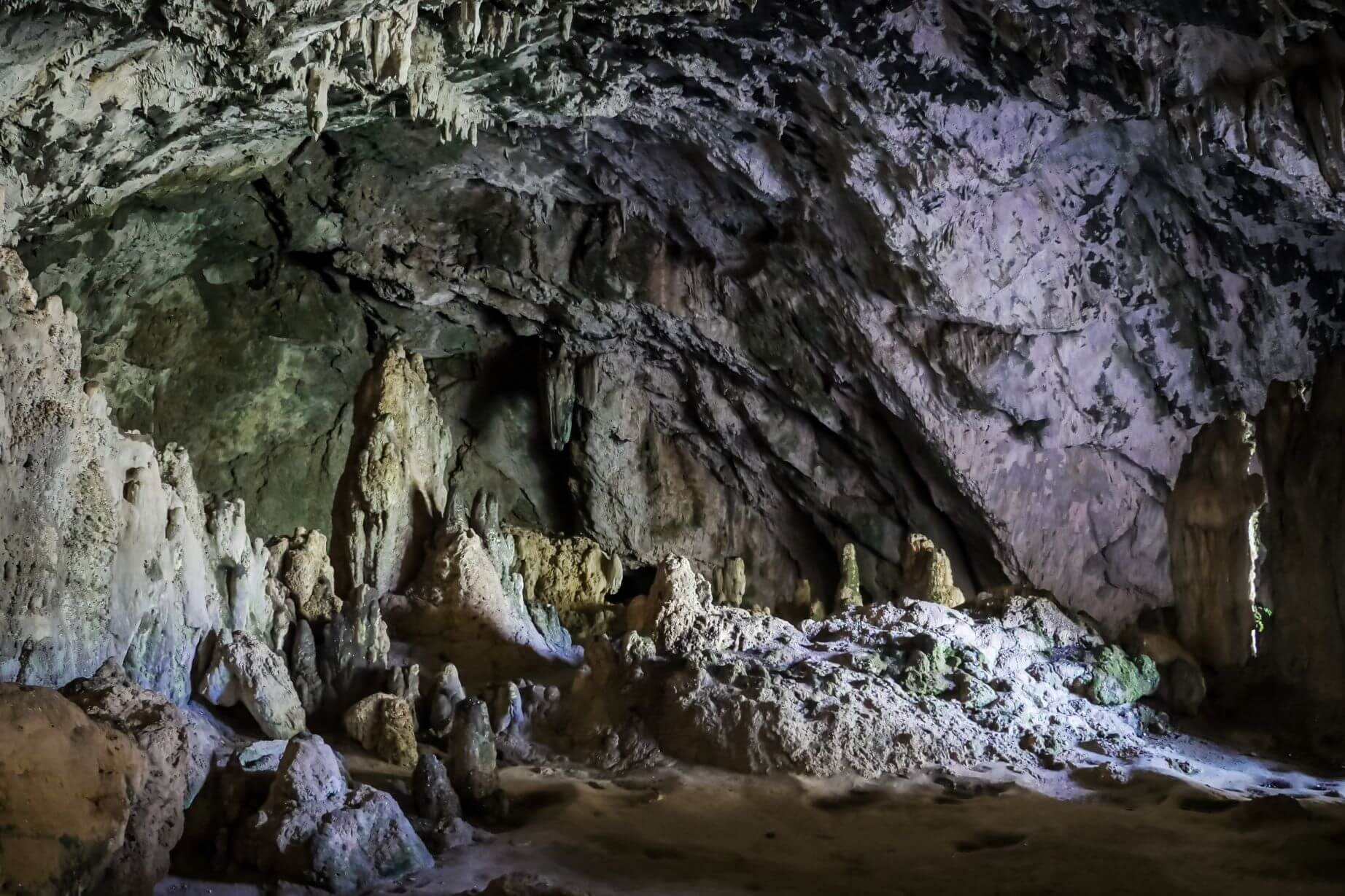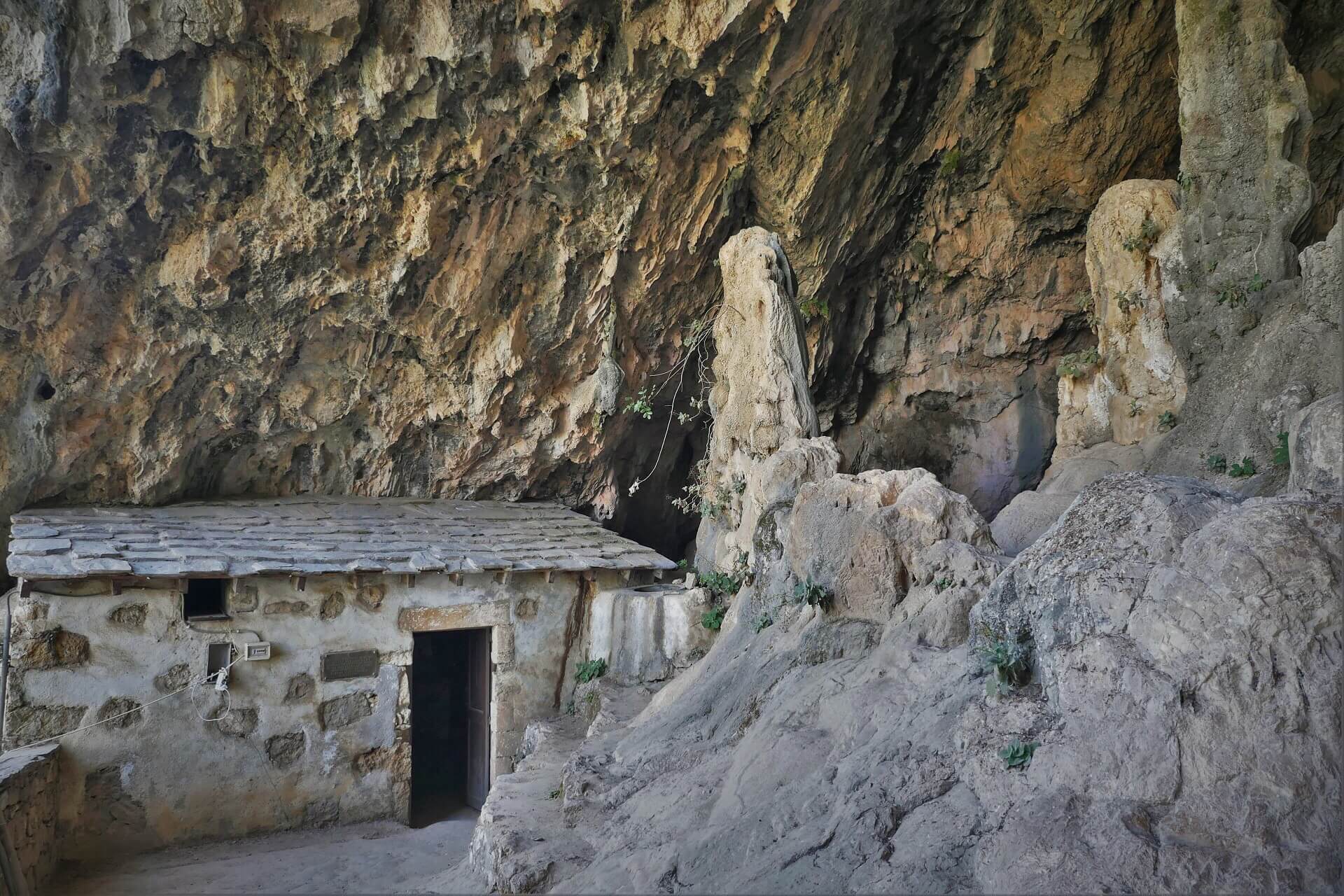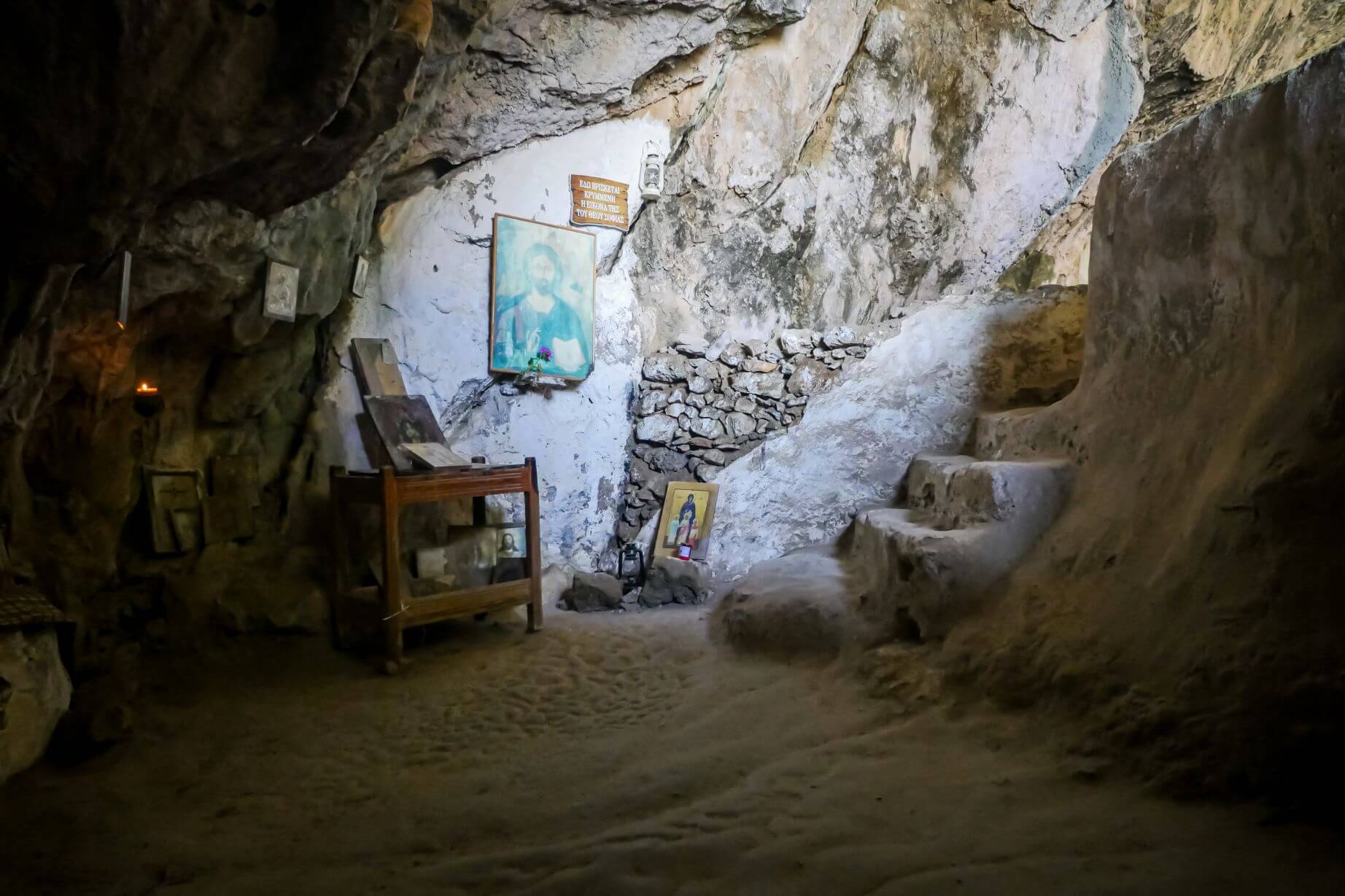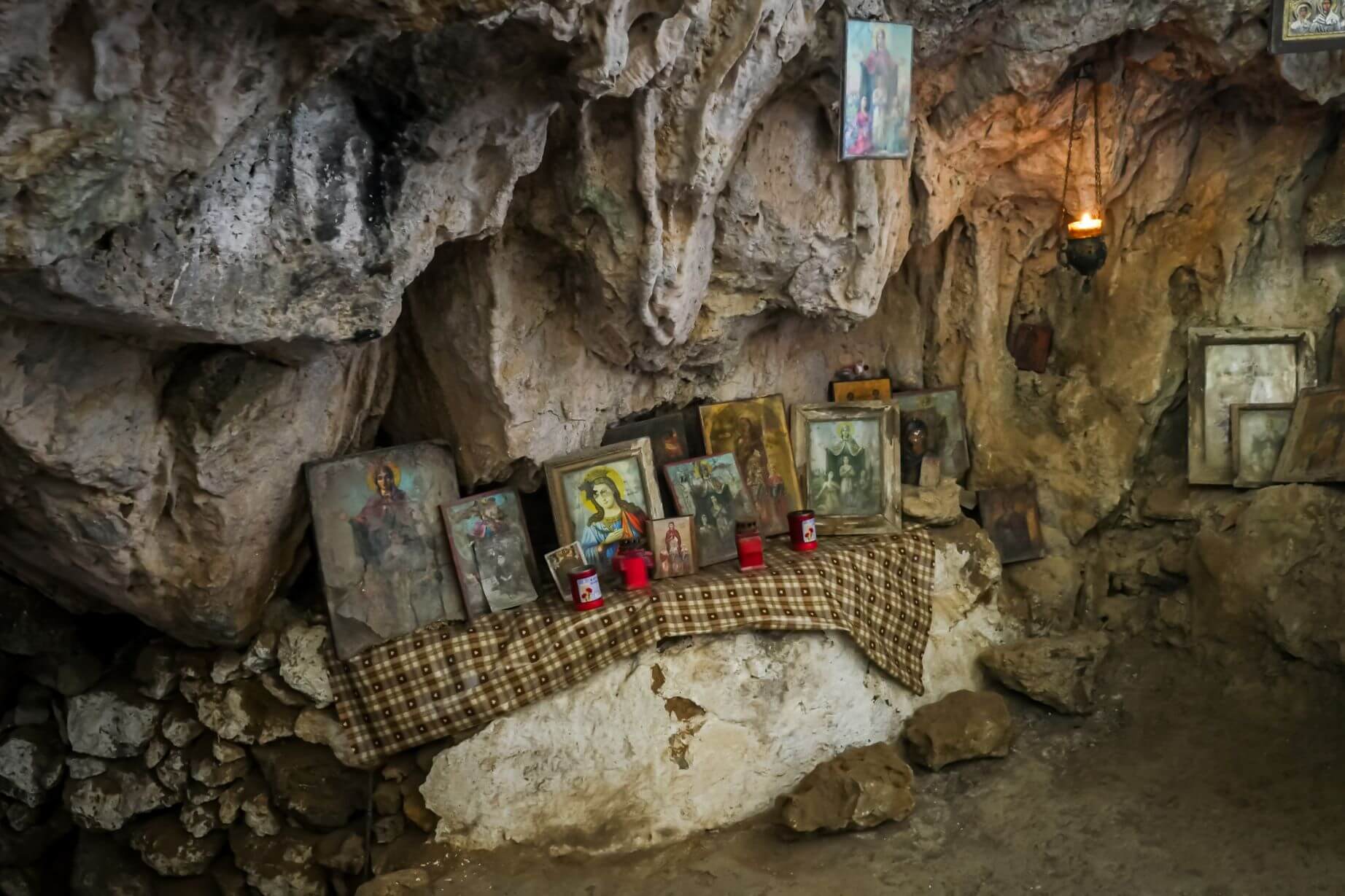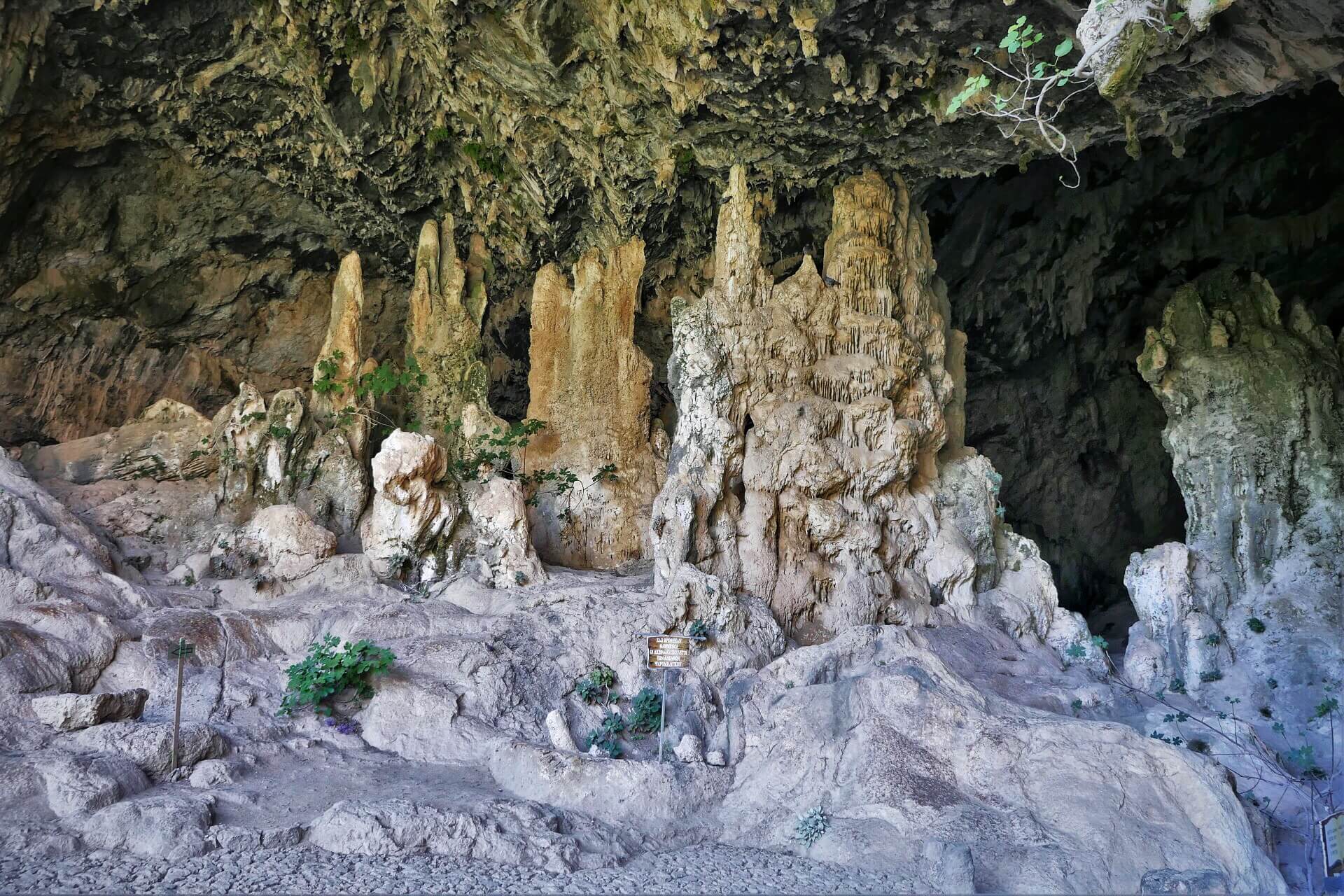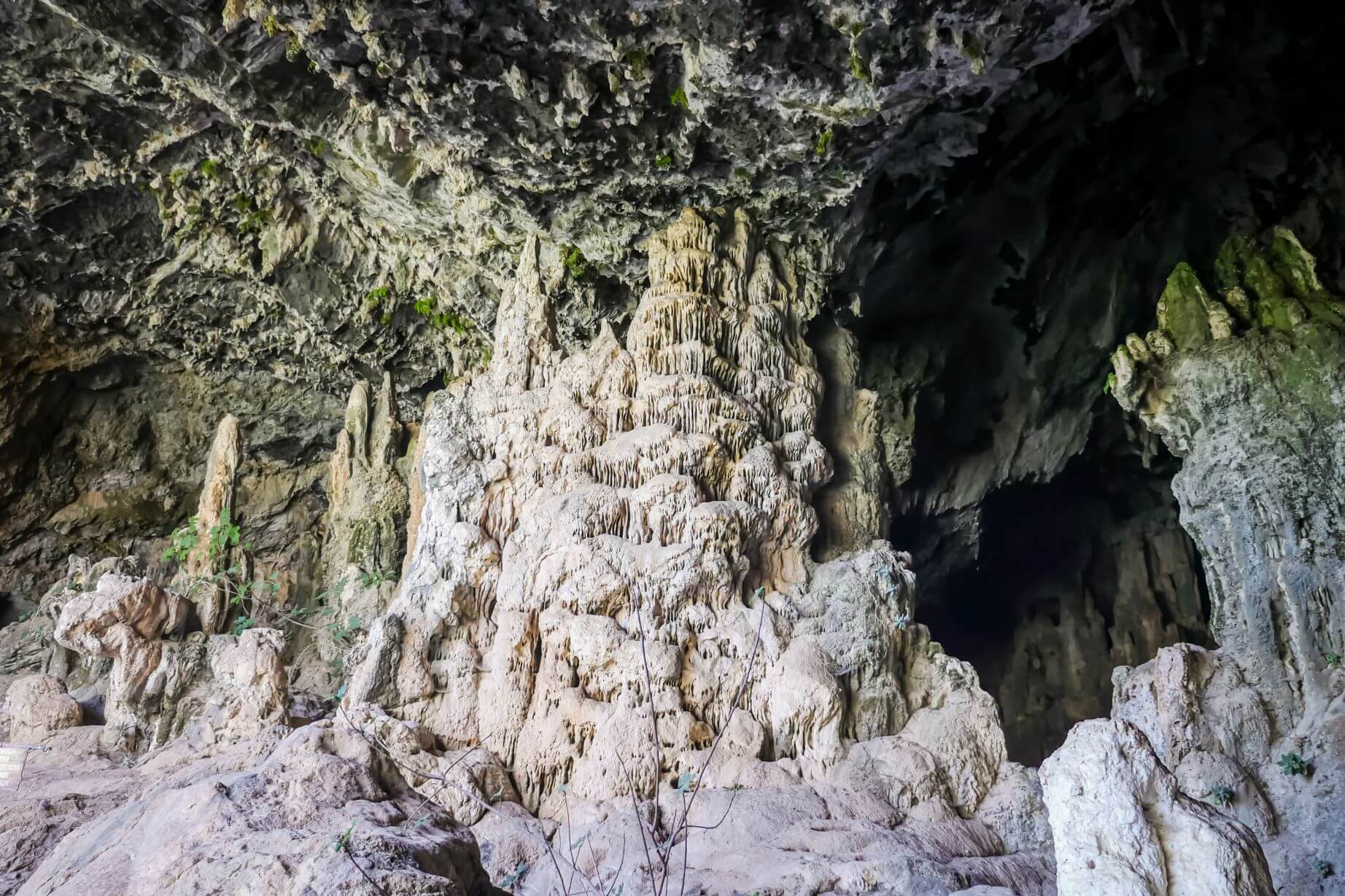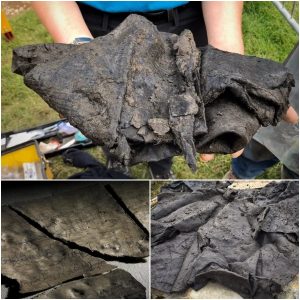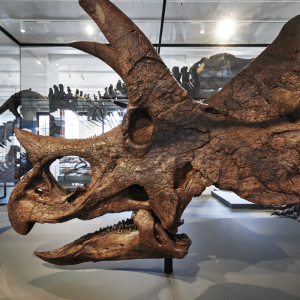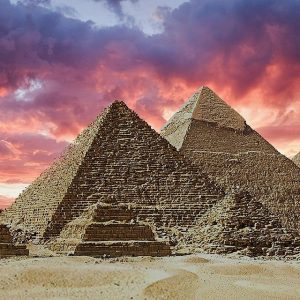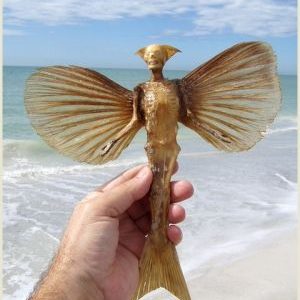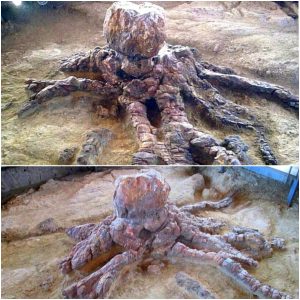The cave of Agia Sofia, Mylopotamos (c. 13th)
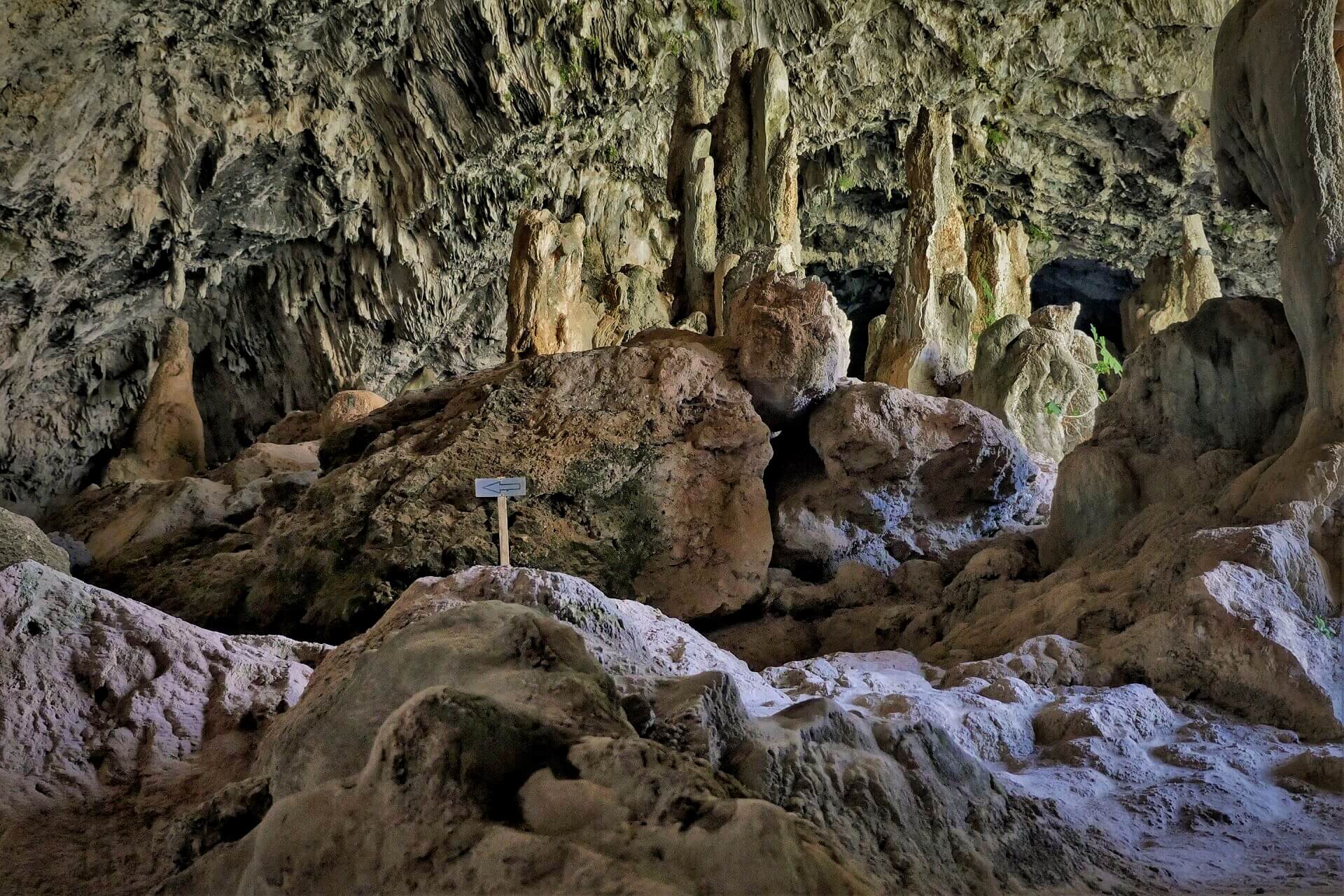
Located in the municipality of Platanias in Chania, the Agia Sofia Cave or Wisdom of God is a popular tourist destination for those visiting the gorgeous beach of Elafonisi. This cave is not only a marvel of natural beauty but also has an interesting history that dates back to the Byzantine era.
The Agia Sofia Cave is located about 4 km south of the village of Topolia and 46 km west of the city of Chania at an altitude of 400 m. It is situated in a remote area surrounded by mountains, making it a perfect location for those who love adventure and nature. The cave is easily accessible by car, and visitors can park their vehicles near the entrance of the cave. There are 150 steps leading up to the cave which counts approximately 100m wide and 100m deep.
As visitors enter the cave, they are greeted with an impressive display of stalactites and stalagmites that have formed over millions of years. A small church is found in the cave that according to tradition, an icon of Wisdom of God was brought from a temple in Constantinople by Cretan fighters and was placed in the cave where the church stands now. Between two huge stalagmites, there is a mark of a horseshoe. Tradition says that is the mark left from Saint Demetrius’ horse when it leaped from the church of Saint Demetrius across the mountain.
One of the most interesting aspects of the Agia Sofia Cave is its history. During the Byzantine era, the cave was used as a place of worship and was dedicated to Saint Sophia. The Byzantines carved out an underground church within the cave, complete with a dome and an altar.
The church was in use until the 16th century, when the Ottoman Turks invaded Crete and converted it into a mosque. The Ottomans added a minaret to the entrance of the cave, which can still be seen today.
In the 19th century, the Agia Sofia Cave was rediscovered by a local shepherd, and it quickly became a popular destination for tourists. In 1963, the Greek government declared the cave a protected site and began efforts to preserve its natural beauty.
Today, visitors can take a guided tour of the cave and learn about its fascinating history and geology. The tours are available in several languages, including English, and are led by knowledgeable guides who provide insights into the cave’s unique features. Visitors can also explore the surrounding area, which includes hiking trails and scenic viewpoints.
Agia Sofia Cave is a fantastic place to visit for anyone who loves nature, especially if you’re visiting Elafonisi. With its stunning formations, interesting history, and beautiful surroundings, the cave offers a truly unique experience for visitors. Whether you’re a seasoned traveler or a first-time visitor to Greece, the Agia Sofia Cave is sure to leave a lasting impression.
Tip: There are two ways to reach the cave. The first entrance has about 150 steps leading up to the cave and the second is through an olive grove and then some steps. The first entrance is more easily accessible.
